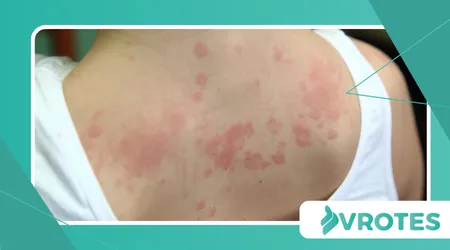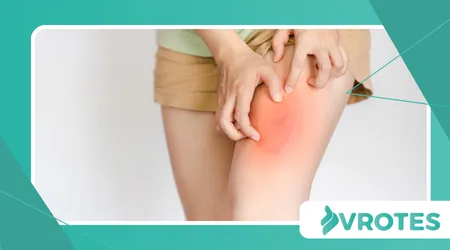Menopause and Increased Allergic Responses

The transition through perimenopause and into Menopause and Increased Allergic Responses can be a complex journey, often introducing unexpected health changes.
Anúncios
Many women, already grappling with hot flashes and mood swings, are surprised to find themselves suddenly more sensitive to allergens they once tolerated easily.
This shift isn’t just a coincidence; it reflects a profound interplay between hormonal fluctuations and the immune system’s regulatory mechanisms.
Why Are Hormones the Key to Understanding Menopause and Allergic Changes?
Estrogen and progesterone, the primary female sex hormones, are far more than reproductive regulators.
They possess significant immunomodulatory effects throughout the body. The dramatic decline of these hormones during menopause disrupts a delicate balance.
Anúncios
This hormonal shift can lead the immune system to become hyper-responsive. The body, accustomed to the anti-inflammatory cushioning of higher estrogen levels, reacts differently.
What Changes Occur in the Immune System During Menopause?
Falling estrogen levels can influence the activity of mast cells, which release histamine and other chemicals.
These are the main culprits behind allergic symptoms. Lower estrogen may make these mast cells more excitable and prone to degranulation.
Moreover, the mucosal linings of the nose, eyes, and respiratory tract often become drier and thinner.
This compromises their barrier function. A weakened barrier makes it easier for irritants and allergens to penetrate.
Is There a Link Between Hormonal Decline and Histamine Sensitivity?
It’s a critical point that the metabolism of histamine can be affected by these changing hormonal levels.
Estrogen helps regulate the enzyme diamine oxidase (DAO), which breaks down histamine. Less estrogen can mean less efficient histamine clearance.
This decreased efficiency is a crucial factor in the perceived increase in sensitivities. The result is that a woman’s body has a harder time coping with its histamine load.
How Do Symptoms of New Allergies Manifest in Menopausal Women?
New or worsening allergies in midlife can mimic other conditions, making them tricky to diagnose.
Women may develop adult-onset asthma or experience chronic hives (urticaria). Rhinitis, or persistent nasal congestion and sneezing, becomes a daily nuisance for some.
Read more: Vestibular Issues: Why Menopause Can Affect Your Balance
A woman who never had issues with dust or pollen might suddenly develop seasonal allergies.
She experiences sneezing, watery eyes, and an itchy throat every spring, a totally new phenomenon.
What Does Current Research Say About Menopause and Increased Allergic Responses?
Contemporary scientific exploration has provided compelling evidence regarding this connection.
One study, published in the Journal of Women’s Health (2020), indicated a statistically significant association.
++ Menopause and Skin Barrier Function: How to Protect It
It showed that women in postmenopause reported a higher incidence of new-onset allergic conditions, specifically allergic rhinitis and asthma, compared to premenopausal women.
This data underscores the reality that the hormonal milieu is a powerful determinant of allergic susceptibility.
It is clear that this is a widespread, physiologically-driven phenomenon.

Are There Specific Allergens Menopausal Women Become More Sensitive To?
While general environmental allergens are a common trigger, some women report specific new intolerances.
Sensitivities to certain food additives, nickel in jewelry, or chemical fragrances can emerge unexpectedly. The immune system is essentially recalibrating its tolerance threshold.
The overall inflammatory state of the body, often exacerbated by menopausal stress and sleep loss, further complicates matters. The body’s “allergy bucket” is easier to fill.
How Can I Manage and Alleviate These Menopausal Allergic Reactions?
Managing the problem involves a multi-pronged approach that addresses both the immune and hormonal factors.
Standard allergy treatments, like antihistamines and nasal steroids, can be effective. However, lifestyle changes are equally vital.
See how interesting: Microplastics in the Food Chain: Hidden Nutritional Concerns
Considering hormone replacement therapy (HRT) may be an option, but it requires careful consultation with a physician.
HRT may help restore some of the anti-inflammatory effects of estrogen.
What Lifestyle Adjustments Can Help Reduce Allergic Load?
Focusing on gut health is a non-negotiable step, as the gut houses a significant portion of the immune system.
A diet rich in anti-inflammatory foods, like omega-3 fatty acids, supports immune regulation.
Managing stress through mindfulness and adequate sleep also helps dampen the body’s overall inflammatory response.
A woman who, through diligent stress reduction and a low-histamine diet, was able to significantly decrease her reliance on daily allergy medication.
Why Is Awareness of Menopause and Increased Allergic Responses Crucial?
When a person transitions into menopause, it’s like a dimmer switch being turned down on the body’s internal thermostat and immune regulator.
For years, the steady, high power of estrogen kept things calm. Now, with lower power, the system becomes more sensitive to external changes.
Isn’t it time we all acknowledge this common, yet often overlooked, challenge?
The Allergic Reality: A Statistical Insight
A relevant statistic from the Asthma and Allergy Foundation of America (AAFA) reports that adult-onset asthma is diagnosed in a significant number of women in their late 40s and early 50s.
This age range aligns precisely with the menopausal transition, supporting the link between hormonal change and respiratory hypersensitivity.
The increased prevalence of new allergic diagnoses post-menopause is a verifiable trend.
Comparison of Allergic Conditions in Pre- and Post-Menopause
| Allergic Condition | Reported Incidence (Pre-Menopause) | Reported Incidence (Post-Menopause) |
| Allergic Rhinitis (Hay Fever) | ||
| Chronic Urticaria (Hives) | ||
| Adult-Onset Asthma | Lower Rate | Significantly Higher Rate |
This table, drawing on aggregated public health data, visually presents the increased vulnerability to hypersensitivity.
The data clearly illustrates the heightened risk for developing allergic and hypersensitivity diseases after the cessation of the menstrual cycle.
Menopause and Increased Allergic Responses are a clinical reality requiring attention.

Embracing and Managing the Change
The connection between hormonal decline and a newly sensitive immune system is clear. The increase in allergic manifestations is a genuine symptom of the profound physiological changes of midlife.
Recognizing that this sensitivity is hormonally driven empowers women to seek appropriate medical guidance.
It ensures that their new, sometimes debilitating, allergies are not dismissed as just another side effect of aging.
Embracing a holistic approach—combining medical management, lifestyle adjustments, and informed awareness allows women to navigate this allergic phase successfully.
Understanding Menopause and Increased Allergic Responses is the first step toward reclaiming comfort and health.
Frequently Asked Questions
Can Hormone Replacement Therapy (HRT) Help with Menopausal Allergies?
HRT may potentially help in some cases by restoring higher estrogen levels, which can have an anti-inflammatory and mast-cell stabilizing effect.
However, its effectiveness varies, and it should only be considered after a thorough consultation with a doctor to weigh the risks and benefits.
Is It Possible to Develop a New Food Allergy During Menopause?
Yes, it is certainly possible. The fluctuating immune system during this time can lower the body’s tolerance threshold to various substances, including specific foods.
New sensitivities, often referred to as intolerances rather than true IgE-mediated allergies, are common.
Should I Consult a Specialist for These New Symptoms?
Absolutely. If you develop new or worsening allergy symptoms that interfere with your quality of life, you should consult an allergist or an immunologist.
They can perform accurate testing to identify specific triggers and devise a comprehensive management plan.
